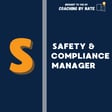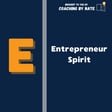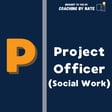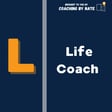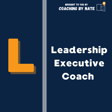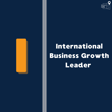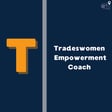Become a Creator today!Start creating today - Share your story with the world!
Start for free
00:00:00
00:00:01

Filmmaker: Meet Nick, jumped out of a 9-5 role to embrace the gig economy of film making
Who would choose to leave the stability of 9-5 IT job and join the gig economy of film making? Nick would! Nick talks openly about how to discuss the change with friends and family.
Transcript
Introduction to A to Z Jobs Podcast
00:00:05
Speaker
Welcome to A to Z Jobs, the podcast that delves into the fascinating world of careers, one profession at a time. In each episode, we'll deep dive into a specific profession, exploring its history, requirements, challenges, and rewards. So get ready to expand your horizons, challenge your perceptions, and discover a world of possibilities. I'm Roxy. And I'm Nate. And we're excited to host you on this journey.
Transitioning from IT to Film Industry
00:00:28
Speaker
In this week's podcast, you meet Nick. Jumping from the IT industry into the feature film industry,
00:00:35
Speaker
Nick is now navigating the choppy waters of the gig economy. He talks about the importance of putting yourself out there, personal branding and networking. Welcome, Nick. Thank you very much for joining our podcast today. Thank you. It's nice to meet you guys. We'll just jump straight into the first question, which everyone's here to listen to. What do you do for a living?
Working in the Film Industry
00:00:57
Speaker
Um, I, so I'm working in the film industry, uh, in, uh, in the camera department. Um, and so that can mean a whole bunch of things tends to be, tends to be an industry that, um, you know, on one hand is can be very specialized and, and where you go, I'm a second assistant camera person, or I'm a data wrangler or something.
00:01:22
Speaker
But the reality is when it comes down to it, a lot of people can kind of do a number of roles within a department or even across departments. And people tend to kind of slide around a bit and take on different roles to take whatever work they can get to continue to be working, but also to use those opportunities to be
00:01:48
Speaker
meeting more people, expanding your experience and your opportunity. Yeah, it is something you have to be very versatile in and on top of everything, right? So there's lots of changes in technology and equipment, different environments, different people. You're always on your toes with those kind of jobs, aren't you? Definitely, yeah. And I mean, a fundamental aspect of the film industry as we know it is that it is based around
00:02:19
Speaker
models of work that are temporary work. So it's fundamentally all freelance work. So there aren't that many permanent full-time positions where you're on a salary with PAYG tax taken out and super put in automatically every week.
00:02:38
Speaker
It is very much an industry where you are hustling and where you pick up a gig that might go for a day, might go for six weeks, might go for 10, 12 weeks. A big part of it is the hustle and the ability to be good with people and to have confidence in yourself.
00:03:01
Speaker
to be able to talk to people and say, hey, I can do this thing that you're looking for.
Freelancing Challenges and Financial Management
00:03:08
Speaker
I'd really like to put my hand up for it.
00:03:13
Speaker
Yeah, it's definitely up and down with the freelance work. It's really great, though, I think it's the last year or so that they've actually added super on to casual rate pay. So within the film industry itself, it's actually quite a good one that they've now packed that into the daily rage or the daily weight. It depends on the independent production, of course, but they still... Yeah, definitely.
00:03:37
Speaker
Yeah, there is a real lack of clarity around employment terms often. Are you engaging me as an employee on a short term basis or am I being engaged as an independent contractor? In which case my rate will be higher because I'm taking care of my own super and my own workers compensation, etc, etc. And there's
00:04:01
Speaker
Yeah, there's rules around that from the tax department, but even then a lot of those rules are open to interpretation. And so, yeah, you've got to keep your wits about you and be prepared to, to the very least, be asking those questions when somebody engages you. What basis are you engaging me on? Am I an employee or am I an independent contractor?
00:04:25
Speaker
It is funny that a job like that, because of the freelance environment that you're in, you do need to have that extra level of understanding of different job types, how they work, different contracts, and all of that, really. Yeah. You do need to think about what you do as if you are a business.
00:04:49
Speaker
Yeah, not just going, oh, I'm a person, I'm looking for a job, but to go, well, no, I am a business in and of myself, probably a sole trader. And I need to think about, well, where do I find work? How do people know about me? How do I advertise myself? If you're a computer programmer going for a role, you have a CV. But when you're working in creative industries,
00:05:16
Speaker
you tend to be thinking of things like, do I have a website? Do I have an Instagram profile, which I'm keeping up to date with content around what I'm currently doing? And yeah, a lot of work for people
00:05:35
Speaker
It doesn't come through Instagram, but when a connection is made and you're being considered, Instagram is something that people often look at to get an idea of who you are, what can you do, what is the sort of level of quality of work that you produce. It's such a common theme in every one of these podcast episodes. Every role they've talked about. It doesn't matter if you're in admin or film industry, everyone's saying how more important it is now to have that
00:06:02
Speaker
that social media presence and have that personal branding. Yeah. Yeah. And that phrase, personal branding, is a good way to think about it. Who am I? What do I represent? I've had plenty of times in my journey where I felt the frustration of having reached out to somebody to try and get a gig, and I'm like,
00:06:33
Speaker
But don't you know what I can do? Don't you want to understand my capability? And you have on one hand people I know going, oh, he's amazing. And then people you don't know going, oh, you know.
00:06:47
Speaker
He doesn't have the experience and you're like, what don't you know? Yeah. So it is. Yeah. You do, like, you do need some kind of confidence in yourself to put yourself out there and to present yourself as somebody who can do
Role and Daily Routine of a Data Wrangler
00:07:08
Speaker
things.
00:07:09
Speaker
even if some of those things you're like, oh, I'm not entirely sure, but I'm willing to back myself to put myself in that situation and rise to the occasion. Yeah, definitely filmmaking. And what's your current situation like then? Are you doing a short term gig long term? Are you full time? And what's day to day look like for you currently? Yeah, so I've just come off a five week
00:07:39
Speaker
independent feature film where I was data wrangler slash digital imaging technician and so that was a really really great experience so you know you're working at a different location kind of every day we had a couple of stretches of kind of three four days where we'd be in the same location including spending a week up that at Palm Beach and staying up there with the rest of the crew and watching the whales in the ocean and stuff which was
00:08:09
Speaker
Yeah, really great. But yeah, in that particular role, on these types of productions, you receive a call sheet every day telling you where to be the next day and at what time. Now, for me as the data wrangler, I would turn up later because what that particular role is that the camera crew shoots footage.
00:08:35
Speaker
They fill up a card in the camera with footage, it comes out, second assistant camera and takes it out, gives the first ID, and then I collect it and then I offload that footage off that card and back it up to two locations, clear the card and return it to the camera crew.
00:08:53
Speaker
And then what I'm doing with that footage is I'm creating dailies and uploading them for the director and producer and cinematographers and others to look at them after the day's work finishes before the next day's work finishes.
00:09:10
Speaker
So it's a really important feedback loop for those guys. Are we getting the coverage we need? Is the quality what we need? Is there any way we need to adapt what we're doing tomorrow to shoot some more stuff, shoot in different way? Yeah, et cetera, et cetera. Yeah, so that was really good. I'm on another feature late October through November. So yeah, at the moment I'm hustling. I'm in the hustle for, yeah,
00:09:40
Speaker
Yeah, for more gigs, might have a 10-day gig kind of mid-August. Yeah, but so at the moment every day is jumping on Facebook in the morning and checking a number of Facebook groups that I'm a member of where gigs are posted and going, right, is there anything here that suits me? Going, right, great, I'm responding to that, DMing or sending an email or whatever they're asking for.
00:10:10
Speaker
Hey, here's me. Here's a link to my website. I'm an interesting person. And then when that's done, I'm looking at what are gigs I've reached out for that I should follow up. Go, hey, I haven't heard back from you. What's going on? Then what are a list of people that I know that I could just reach out to and go, hey, what's going on for you at the moment?
00:10:38
Speaker
Here's where I'm at, you know, of anything. Yeah, stuff like that, so. Yeah, yeah, you know, it's like, oh, I, you know, I did a gig three months ago where I met a producer on that gig and I go, well, it's been three months. This is a reasonable time for me to send them an email or give them a call depending on how well I know them and going, you know, just go, just checking in and seeing what happens
00:11:08
Speaker
Generally, because work is very temporary in this industry, most people are very positive when they speak to you. Because they don't know where their next job is coming from either. And it might come as a lead from you. So the vast majority of people will very happily have a chat with you on the phone or
00:11:37
Speaker
you know, if they receive an email, like look at the email, they may not necessarily respond, but yeah. And again, it's this kind of confidence thing backing yourself that if I call somebody, you know, even if, you know, out of the blue that, you know, that's a reasonable thing for me to do. That's, I am doing something that will potentially be of benefit for them if it's the right place, you know, at the right time.
00:12:08
Speaker
Going back to the role that you just finished with the IO and data transfer, that's a really important role to have because you have the gold of the day. You're moving data across from an entire day's hard work.
00:12:28
Speaker
I once had a role like that where I think I nearly destroyed two SIM cards. Are you nervous? Have you ever done a role like that before with that amount of responsibility?
00:12:47
Speaker
Are you feeling inspired by everything you've learned so far? Keep that momentum going with our four-part Career Change Made Easy course. Dive deeper at thecareerchangecoaches.com. Now enjoy the rest of the podcast. Oh look, certainly, yeah, it's silly. Once that card comes out of the camera and it gets handed to you, you are the most important person on set until that.
00:13:14
Speaker
footage makes it safely to post-production. So it's really important to have good systems to be able to track where you're at, what you've done, to be able to double check and triple check what's happened so that you don't miss anything. I've had times where I'm like,
00:13:43
Speaker
We're missing a card. A card has gone missing. I've got card 15 and I've got card 17. Where's card 16 gone? And so to be able to go back through my workflow and the logs that my process generates and go, okay, I can see, you know,
00:14:05
Speaker
I can see I received this card at this time, or I can see I haven't received it, that sort of thing. On this last gig that I was on, we adopted a very simple process using WhatsApp. So we had a WhatsApp chat with everybody who handled cards. And anytime somebody handed a card to you, you would just take a photo of it straight into the WhatsApp chat.
00:14:32
Speaker
So that just gave us a very, very fast, very simple log of, of, hey, you know, I can go back and I can see, you know, where, when a card was handed over at any time. And yeah, so when it comes out, the second day I see you guys, I go, hey, I know there's a card ready on set. And so if I wasn't physically on set, but I was offsite somewhere else, I go, right, time to head over and grab that card. The other thing I use a lot is console tape.
00:15:02
Speaker
Yeah, so I have drives with tape on it and going, right, two copies have been made of that. When you have a pile of cards and drives on your desk and you're like, okay, hang on, which one have I done yet? Yeah, it's a super, super simple way to just be able to keep track of
Nick's Journey from IT to Film
00:15:25
Speaker
what's happening.
00:15:25
Speaker
Oh, that's brilliant. And the Facebook groups that you go on to, to, you know, keep an eye out for roles and things like that. Are there any in particular that are quite fruitful or that you could recommend to anybody in your? Yeah, definitely. So the first one, the first one I'd recommend is search for shooting. So S H O O T, shoot.
00:15:51
Speaker
and they've got two Facebook groups, one which is for entry-level roles and one which is for professional roles. So I tend to keep an eye on both of those. And generally most days there is going to be something posted there, at least one thing where I go, hey, yeah, that's something I could do and I could follow up.
00:16:20
Speaker
If you are, yeah, if you're kind of starting out, the Australian Film, Television and Radio School, so AFTRS have a Facebook group called AFTRS Notice Board, and that's got a lot of kind of entry level things, like some of them are kind of student projects where they're going, hey, I'm looking for somebody to help out, this is unpaid,
00:16:48
Speaker
Yeah, but generally those afters projects are run to the same standard as a professional film set. So they're really good experience. And again, every gig you do, whether it's paid or it's unpaid, you are meeting new people. They're seeing who you are, what you can do, and you've got somebody else that you can go, oh, hey, by the way, I'm looking for work. If you know of anything, please let me know or recommend to me.
00:17:19
Speaker
Brilliant. So how did you get started in all of this? Um, yes, it's been, it's been quite a journey. Um, and, and I think like I was saying before, like that, the nature of, of the industry being based around, uh, temporary work. It does make it a bit harder cause it, cause there's kind of two aspects that you need to manage. So on one hand, you, you know, you're going.
00:17:47
Speaker
going, I need to develop the appropriate competencies. So I need to be able to do the work itself. I need the right skills to be able to do that. And there's lots of ways that you can develop those skills through self-education, watching tutorials on YouTube and stuff like that.
00:18:15
Speaker
getting, you know, taking whatever equipment you might have, whatever camera you've got, if you have a DSLR, whatever it is, anything that shoots video and just going, I'm just going to start using this as much as I can and making things
00:18:29
Speaker
And then starting to look for those opportunities to get on a somebody set for free, even if it's very amateurish or whatever it is, every time you're doing something, you're starting to build skills and develop skills. And of course, you can do formal education through AFTRS or TAFE has very good programs
00:18:59
Speaker
et cetera, et cetera. So one hand, yeah, you're building those skills, you're developing your own confidence as well with those skills, and you're also understanding how professional film sets work in terms of roles and workflows and that sort of thing. So that's kind of what you've got to do on one hand. But on the other hand, you're going, I need to build the network.
00:19:24
Speaker
I need to meet people, I need to be able to prove to them that I have the capability to do this. And so they're two different sides of the coin. And when I first went, hey, this is something I really wanted to do, this idea of being able to sell myself was actually very hard. And
00:19:51
Speaker
I'm lucky in that I come from a background prior to this where I worked in business kind of consultancy and coaching. And so I reached out to a friend of mine that I used to work with and I said, look, I'd really like you to help me as a coach and coach me on my ability to talk about myself and sell myself. And so, yeah, we had kind of three months where, yeah, I'd meet with her once a week and
00:20:21
Speaker
and she would really help me with that kind of internal confidence and to find ways to talk about yourself. Yeah, so if I think of it as a journey, it's been, so it's probably been a kind of a four-year process to get to a point where I go, hey, I'm now a full-time film industry professional,
00:20:50
Speaker
Um, and for me, for me, a starting point was education. So I did a one week short course at AFTRS on lighting for film. And I came out of that going, Oh, wow. You know, if I could do anything with the rest of my life, I'd love to be doing this. Um, and then about six months after that, um, I was, yeah, working in an IT job and, um,
00:21:18
Speaker
And yeah, got the shits with it and quit. When I got to get out of this environment, it's a toxic environment. And then I started looking for another IT job. And it took me about six weeks of, as I was looking for more IT work to go, hey, there's no reason why I couldn't look for something else. And so like that was kind of the turning point of believing
00:21:47
Speaker
a different career was possible. To then, you know, to sometimes call it practicing the art of the possible. If you don't believe it's possible, you can't do it. But if you believe there's a possibility, and if it's a slim possibility, you've opened the door to then start to be able to act on that and do something about that.
00:22:10
Speaker
We've actually been listening to the audio book, Thinking Grow Rich, where it's like you're thinking the impossible that comes out. And it's amazing what comes out of the stories that you listen to when you, you know, it's like Henry Ford thinking that, you know, he could put seven cylinders into a car and everyone said it was impossible, but he made it possible, you know. And there's, you know, and there's no, it's not, it's not magic. It's not like, oh, if I believe it will happen.
00:22:40
Speaker
No, that's not the case. But if you don't believe it's possible, you won't act in a way that will move you towards that. So you'd need, yeah, a fundamental belief that there is a possibility here, even if it's, yeah, even if it's slim. And I have, yeah, I've had moments where I'm like, is it could, yeah, is this really, is this really possible? And yeah, which,
00:23:11
Speaker
you know, which kind of leads to another idea that is the idea of energy. So you need to have a well of energy to kind of keep moving forwards, particularly in the face of, I'm not getting anywhere, I'm putting myself in front of people and they're like, oh no, you don't have experience and that sort of thing. Knowing
00:23:39
Speaker
we're having an idea of where you get your energy from, to be able to replenish that and keep going is really important when you're on that in that transition phase. Yeah, and so for me, listening to lots of podcasts, kind of industry podcasts where I'm
00:24:02
Speaker
I'm on one hand learning, but also getting that kind of inspiration energy to go, yeah, yeah, cool, yeah, I can do this. Through your transition, through that process with, how was your family and your friends and your sort of your immediate network when you said, actually, I'm doing a pivot, I'm moving out of this IT, I'm gonna work in films. How was that process? Yeah, so firstly, it was,
00:24:33
Speaker
It wasn't a, ah, today I'm deciding I'm gonna do something different and then the next day I'm doing something completely different. It was a transition and it was a roller coaster transition.
Balancing IT and Film Projects
00:24:47
Speaker
So I mentioned before that I left one job and I had about a six month window where I was, yeah, I was kind of hedging my bets, looking for IT work.
00:25:02
Speaker
building experience in film, did a bunch of editing work in that time, got a bit of money flowing, but not enough to make ends meet. And after about six months, an offer came in to do a kind of for a six month contract in IT, which then spun out to nine months and I took that to keep the money flowing.
00:25:28
Speaker
That nine-month contract ended when COVID came along, unsurprisingly. And then I had this other amazing six-month window where
00:25:45
Speaker
JobSeeker became available instantly for people because of the circumstances. And I had this really amazing creative six month window during that first lockdown where I did a whole lot of live streaming projects with musicians, including a six episode music chat show, which was kind of my favourite thing of the whole lot.
00:26:15
Speaker
It was brilliant. It was, yeah, it was great. It's called Life from the Couch. It's still on Facebook, so you can go back and watch it. At that time, I also applied for a master's degree at AFTRS. And so I had this, you know, again, this kind of unusual thing where I'm going, running out of money. I'm going to have to take
00:26:45
Speaker
another job in IT but I don't want to get a job and then in six months time go hey it's been great or even three months time I think it might have been but here's my resignation because I'm gonna go study and so I had a company come along and offer me a contract that was just the right length
00:27:11
Speaker
Now, as it turned out, I wasn't offered a place in the master's degree. And this company that I was doing IT work for, IT kind of business consultancy work for, converted my contract to permanent. And then at which point, very shortly after that, I had a very honest conversation with my boss going, look, this is not what I want to be doing long term. I want to be doing something different.
00:27:39
Speaker
Um, and so over the last three years, I kind of pursued a strategy of going, how can I slowly build up film work and build down, build down the other work. Um, now that's really tricky. Um, you know, it kind of makes a lot of sense to go, how do I manage the financial risk? Um, you know, I just want to slowly replace this income with that one and everything's happy.
00:28:06
Speaker
But of course the challenge with that is you see opportunities and you go well, I can't reach out for that opportunity because I'm Working working for these for these guys So kind of over a three-year period I like like I said, I had had a year where Where I had a work with a friend of mine to really build my confidence Yeah through through being coached and
00:28:34
Speaker
And that year I was very focused on networking. I was going, I'm going to go meet a whole bunch of top Australian cinematographers and go, look at me, I'm amazing. Give me work. And I did. I met a whole bunch of them, but didn't get any work from them because they tend to
00:28:54
Speaker
employ the first ACs below them, the first ACs then decide who the second AC is, and so you actually need to be kind of coming in and meeting these folks at the lower level. So then the next kind of window was going, was saying to them, I want to cut down the days I'm working for you and free up
00:29:22
Speaker
um, at least a day a week to give myself time to work on finding opportunities. Um, and I had, you know, I had kind of a period of time where, yeah, where we had this loose arrangement and I'd just get busy at work and I wouldn't take that day.
00:29:42
Speaker
Um, and so I eventually got to the point where I went, no, I need to go Thursdays. I do not work Thursdays. You know, yes, I can move that day around if you need me to, but the rule is I'm not working Thursdays, you know, assume that. Um, and so I did that for a while and that, that, um, yeah, that.
00:30:04
Speaker
got me in a rhythm and that gave me the ability to look harder for work and as small jobs came in I was in a position where I could go hey next week I'm only going to work three days next week because I've got this small job.
00:30:21
Speaker
But those small jobs aren't the ones that are creating the opportunities to build a sustainable income. And so, yeah, so recently, yeah, this opportunity for a five-week gig came along and I was able to go at very short notice, hey, I'm going to take five weeks off.
00:30:45
Speaker
And they're like, yep, cool. Yeah, it was good timing because there wasn't other things going on. And yeah, and so I started on that five weeks and then had a conversation and decided, hey, look, now's the time to really pull that plug. And so one of the things I'm definitely finding is that
00:31:12
Speaker
that, you know, I can reach out to somebody that I've spoken to in the past going, hey, I haven't got any work. But the conversation starts with, hey, I've just come off a feature film and I'm looking for, and the whole tone, like the perception of the conversation changes. Like, oh, okay, yeah, this guy, you know, this guy, you know, this guy is punching at the weight that we get into, yeah.
00:31:38
Speaker
So it's kind of the, yeah, the cook's tour of, of the journey. Um, yeah, I'm looking forward to seeing what happens next. You could rewind and give yourself advice to speed it up. Would you? And if you, what advice would you give yourself to make, make the journey a bit quicker? Yeah, that that's, that that's a really good question. Cause there was, there's been a number of times through the journey where I've gone.
00:32:05
Speaker
Do I just quit? Do I just jump off that cliff?
Financial Risks in Career Transitions
00:32:14
Speaker
There's some wisdom in that, where you go, I will now be working on this full-time.
00:32:25
Speaker
But that comes with significant financial risk, particularly at this time, the economy the way it is. So yes, I don't know if I necessarily would have done that. And in a sense, the way it's played out is kind of,
00:32:52
Speaker
Yeah, I look back at it now and I go, oh, I'm not surprised. Yeah, so the feature I just did,
00:33:04
Speaker
That came up because I sent a message to a producer and a director that I've done some editing work for about a documentary project they've got that's on hold and going, hey, what's happening? Where's things at? And the producer's like, oh, can you date a wrinkle? I'm like, yeah. Are you free in a week's time for five weeks? And I'm like, give me a day to work this out.
00:33:34
Speaker
that opportunity came to me because he trusted me.
00:33:40
Speaker
because of the work I'd already done them, done for them, which came because of somebody else, another producer I know who I had as a sound recordist on a short film that I wrote and directed and shot myself. So you kind of look at it and you go, oh, it's such a chain of events and connections that get you to that pivot point.
00:34:10
Speaker
So yeah, so it's really, how do you get to that pivot point? And in a sense, when I think about it now, I go, well, the pivot point's inevitable. If you do the work, it's just unknown as to when that pivot point is going to happen. Yeah.
00:34:32
Speaker
But you did make some of the very key steps in filmmaking. You know, you've made your own production, which is a good side of it, getting people involved and showing what you can do and what you can get stuck into.
00:34:44
Speaker
You volunteered and supported others, I know for a fact, because you've helped me out on all of my little indie projects. And you get your name out there and you start networking in all of these environments, like joining Kino, which they make movies and screen them at once a month and all of that. And just putting your work out there, getting to know people, the key cornerstones of all of that.
00:35:09
Speaker
always always pivot into something wonderful like this five-week shoot and now you have your own personal branding where you do actually step up and go now actually feature film straight off it give me the next job and yeah it's a wonderful journey yeah yeah for sure and yeah I mean I kind of like I said before you know when you when you reach out to other people people tend to be
00:35:36
Speaker
tend to not be an asshole because you might be where their next gig comes from. And it's the same way. If you're good to people, whoever you meet, just be a decent human being to them.
00:35:58
Speaker
be interested in them. What do you do? What are you excited and passionate about? And that pays off in all circumstances in life. Don't be an asshole. There you go. Definitely. So what's your favorite thing about all of this? What keeps you going?
00:36:23
Speaker
There's lots of stuff I enjoy, so I'm really enjoying the variety of everyday being different.
Creative Joy and Impact of Film
00:36:39
Speaker
Yeah, last weekend I mucked in and did our first AC in the Gaffer role on a short film for free, which again was an opportunity to meet some people and build the network. But yeah, I had a couple of exciting moments of going, oh wow, yeah, I can do this. I'm doing something I haven't done before and oh yeah, I nailed that. But you know, I mean, at the end of the day for me,
00:37:09
Speaker
I mean, I find real joy in creativity and the creative process in producing something, being involved in the creation of something that goes out to the world that has a purpose and that has an impact on people. And even if that's just,
00:37:34
Speaker
you know, escapist fun for, you know, for 15 minutes or an hour and a half or two hours or whatever it is that makes the world a better place.
00:37:46
Speaker
Yeah, so that creative purpose is important to me. And I really enjoy just the art of shaping an image. And there's this really exciting moment when you've got to set up a camera, you've lit a scene, and you look at it on the monitor and you go, wow, that looks really good.
00:38:10
Speaker
I never kind of tire of that, oh wow, I made that. I was able to combine a whole lot of elements together and that's resulted in something that's really aesthetically pleasing and beautiful.
00:38:26
Speaker
It's like building a whole new world sometimes, you know, that people are opening up and looking through. It's amazing. It is. Yeah. And I shot a short last year. So as I mentioned before, I wrote in and directed it and shot it. And it's a kind of a dystopian sci-fi about a group of people living in a bunker. And that was a really great example of taking a blank space and going, we've got to create a whole world in here.
00:38:54
Speaker
in such a way that people look at it and believe that it's real. I have not made a sci-fi yet like in my own time my spare feet it's the one thing but I've got to get the horror movies out of the way but that's a whole other story. So it is it's a brilliant way what you were talking about mucking in
00:39:17
Speaker
getting involved, volunteering, especially in the film industry. And your point about, you know, being a gaffer, but doing it for, say, the first time or doing it again to build that experience and coming away and going, actually, I can do that. That's something I can add to my CV and be more confident about. I think it's brilliant. It would be brilliant advice for anybody starting up.
00:39:41
Speaker
Yeah, and if I go back to the question about what could I have done differently, it purely would have been more confidence in myself. Being more confident just to have those direct conversations with people of, hey, I'm looking for work.
00:39:59
Speaker
which in the creative industry is so hard. It's not just one mountain you climb, you're constantly climbing each individual one and sometimes going downhill on your self-development. So it's this constant rollercoaster, like you say.
00:40:17
Speaker
I used to go into meetings with directors and go, I'm going to get this project off the ground. And then two days later, something happens and I feel like I've completely mocked it up and I just run away from it completely with my arms flailing. It's just this constant up and down and keeping it going.
00:40:36
Speaker
Yeah, and I think you are looking for, there's a bit of this, but you're looking for the trend is up.
00:40:50
Speaker
try to focus on how each experience has actually put a stepping stone into place rather than the negative feeling that you might come away with sometimes. Yeah, and also enjoy each experience. Go, I'm here, I'm on set, I'm doing something. How do I do this to the best of my ability and go a bit beyond what's expected from other people?
00:41:13
Speaker
Most of the time, unless you are the director or cinematographer, you are executing somebody else's vision for them. So you are there to help them. And so the more you approach that with an attitude of, hey, I believe in what you're trying to achieve, what can I do? How can I bring something to it that makes it even better than you hope?
00:41:39
Speaker
Yeah, I mean, that's the winning attitude to have in those circumstances. So in terms of the biggest challenges or the biggest sort of negatives that you've come across at the moment, what sort of stands out as being the things that you least like in the industry?
Financial Instability of Freelancing
00:41:56
Speaker
Yeah, look, I mean, at the moment, I'm certainly enjoying, like, I'm enjoying every aspect of it. So I've gotten to the point where I'm, at the moment, I am enjoying the hustle.
00:42:08
Speaker
Um, it is possible that, you know, in this roller coaster ride, I might find myself down in a dip where I'm going, man, the money's not flowing. Um, and, uh, you know, living in Sydney with a mortgage, that's bloody tough. Um, so I might, you know, might find myself in that circumstance and it'd be emotionally anxious about that, but also practically, you know, at, at some risk. Um,
00:42:38
Speaker
Yeah, certainly, you know, economy-wide at the moment, every industry is down and is quiet, and the film industry is no exception. Yeah, and look, I mean, another challenge that that makes me think of is that you reach out to somebody and they come back to you and they go, all right, cool, they're clearly interested. And they ask you that awful question. What's your rate? And you're like, I don't have enough information from you to know if you are, you know,
00:43:09
Speaker
Big budget, top dollar, commercial rate, or if you're an indie. And so again, that's kind of a skill you need to work on and get comfortable with to be able to not be afraid to talk about money.
00:43:26
Speaker
Yeah, there are some really good ways to redirect that question as well. So rather than it being you answering that question, you get them to answer it for you. So there's some, we'll share some, I'll share some thoughts and things about that. But I got stuck with that every time. And I think I've been on so many sets where I know I've been paid peanuts because it's just what I asked for. It was the first thing that came to mind on the phone rather than going, hey, actually, you know what?
00:43:55
Speaker
I'll give you a call back in a minute and then you can sort of think about it a bit and go from there. So going back to any kind of advice for anybody starting out, what would be your key points for someone trying to do what you're doing? And I think especially the change that you're doing going from IT to film.
Advice for Aspiring Filmmakers
00:44:20
Speaker
Yeah, look, again, to me, it comes back to the art of the possible. To firstly go, this is possible. I believe this is possible and I want to do it. The second piece of advice that I'd give, this is something I've learned the hard way and I'm really big on, is you need to establish your own systems of work.
00:44:50
Speaker
So I talked before about, hey, I'm in between gigs. Here's what my day looks like. I check Facebook. I follow up on the gigs I've already pitched for. I go back to my list of contacts and go, who can I follow up on?
00:45:09
Speaker
It's really important in those, both in terms of going, I'm trying to make a change and get to the goal, but also once you've made the change and you're in it, to have your own personal system of work that keeps you focused on what you're doing. So that you wake up in the morning, you get to your desk and you go,
00:45:32
Speaker
Cool, I know what I'm going to do today. And I also know that what I'm going to do today is directly focused on the goals that I'm trying to achieve. And so there's a whole range of different patterns and practices that you can use to do that. And I've developed my own and I use.
00:45:53
Speaker
Trello a lot. It's really good for having lists and moving through phases. But I also set myself goals every three months. And then at the start of every week, I go, right, what's one of my goals for the week? And as I decided my goals for the week, I look at my goals for the quarter and I go, right, what am I going to do to
00:46:19
Speaker
to work on this goal. What am I going to do to work on this goal? What am I going to do to work on those goals? Those goals are both work-related, but there's also personal goals as well. So work-life balance goals to keep things in balance and not just let things rush by you because you're so focused on just trying to get work.
00:46:44
Speaker
Brilliant. It is something I spent a lot of years learning and I think it's anybody, it's keeping that structure because especially in the creative industry, you can sit down and your brain's going crazy of what you want to do and how many things you want to do. I used to have that entire wall full of sticky notes and now started to work it all down from there.
00:47:05
Speaker
But, you know, it's that structure setting up the day and just keep keeping yourself moving. So what you're talking about is very much keeping those steps, making those baby steps every day. And, you know, the fact that you're sitting down at your computer with an objective.
00:47:20
Speaker
you know, and you've got that objective before you sit down at your computer, you know, nine times out of 10, everybody sits down at their computer and goes, Okay, where to start? Yeah. Yeah. You're like, I'm just cruising Facebook. Okay, I gotta stop. I gotta stop. Ah, it's so addictive. And then balancing the personal and the creative at the same time, it's two very difficult things to do, because you kind of, you know, you put off going to the gym to keep editing that.
00:47:48
Speaker
that episode or, you know, that kind of stuff. But knowing what your non-negotiables are. So your Thursday, no work. And you carry on with what you need to do and stick into those rules with the passion and the same passion that you have for filmmaking. I think a brilliant advice.
00:48:06
Speaker
The other one I often talk about is having three horizons. And this particularly is for kind of driving your own projects, but going, what am I working on now? What have I got queued up next? What might I be doing after that? And so if you've always kind of got those three things sitting there in a queue, you avoid like the danger of
00:48:34
Speaker
finishing your first thing and just falling in a heap from exhaustion because it was you know it's always hard to to finish something and and then just doing nothing for a while like losing all your momentum because you don't have something else sitting there ready to that you're excited about ready for you to pick up and and keep going
00:48:55
Speaker
I love that because you know what's coming next as well so you kind of you're bookending it a bit rather than going I've got to focus on this one thing solely you sort of almost give yourself the time limit as well because I'll work on something in over and over and over again but because you know what is coming next and the way it has to happen it's
00:49:15
Speaker
It's kind of like a challenge. That Horizon 2 gives you some motivation to go, no, let's get Horizon 1 done. Yeah, let's finish this so I can move on to the next one.
Film Education and Learning Resources
00:49:26
Speaker
I love that. Three Horizons.
00:49:35
Speaker
We've had a bit of a chat already about the education paths that you can take. There's the short courses, there's more formal education through university. So I suppose, do you have any advice or any particular course that stands out to you that is the top tier type way to get in? Or do you think it's all- Yeah, so if you want to start a flame war on Facebook, get in a filmmaking group and say,
00:50:02
Speaker
Should I go to film school or should I just learn? Yeah, and then just sit back with the popcorn. Look, in terms of Australia, so AFTRS is clearly the leading film school in the Southern Hemisphere. They essentially have two award level programs. So they have a Bachelor of Arts degree.
00:50:28
Speaker
and which is very good for I've come straight out of school I know nothing I want to do this and over three years they get you to touch every kind of role within within the film so by the kind of last year of it you're yeah you're going I want to start to focus down on and and it it aims to spit you out you know the other side you know set set ready
00:50:55
Speaker
It also helps you establish good networks at the start, so that you hopefully come out of that and keep going. Then they have the Master's program, where you specialise in a particular area, so cinematography, directing, documentary, music, production, there's a few others, other disciplines. That's very, very competitive to get into.
00:51:25
Speaker
and I'm not saying don't try, again, believe in the art of the possible and practice it, try. Both of those courses are expensive, so that's something to trade off. Do I want to spend $50,000 on a master's degree? Or what would happen if I took that $50,000 and I spent it on something else?
00:51:54
Speaker
buying equipment, making a film. There's a trade-off there. TAFE has
00:52:05
Speaker
TAFE has some good courses as well so it's not as well regarded but a vastly different price point, potentially free if you are an older individual and if you're not, if you're younger, definitely more affordable.
00:52:26
Speaker
A lot of the universities have film courses, but you want to look at them really carefully to go, are they teaching you the trade, you know, the trade craft of film or are they leaning more towards, you know, artsy film critique, you know, kind of cultural studies rather than getting you set ready.
00:52:53
Speaker
So yeah, they're the things I think about in terms of education. But yeah, there's plenty of, you know, again, just shoot as much as you can. You know, is always the advice, regardless of whether you go film school route or not. And, you know, there is
00:53:21
Speaker
You can spend your life on YouTube finding tutorials if you're into editing or color grading. And let's say you use Davinci Resolve as the software to do that.
00:53:36
Speaker
certificates that you can do for free download the information work through a workbook do it do an online test for free boom you get a get a certificate there's yeah those sorts of things as well where you know you can both learn but also get
00:53:52
Speaker
you know, get a thing, a piece of paper that is a proof point that you have some capability. Qualified in Da Vinci. It's overwhelming the amount of stuff that you have nowadays. You know, when I started university in 2011, there was nothing, nothing like this. Your phone couldn't shoot what it does today. And
00:54:17
Speaker
you know, I helped out with the Smartphone Ficker Fest workshop on Saturday, teaching how to shoot with a smartphone and how easy it is and what kind of comes out of the pocket of dreams that you have at the moment. So it's just, there's no excuses really, if you wanted to get into the industry, there is just so much free content out there that you can start with before doing a course.
00:54:43
Speaker
that you can kind of get a little overwhelmed. So it's always good to reach out to someone within the industry and ask because they can send you some pretty good links to start with. Cause I've, I've seen a few people look things up and go, Oh my gosh. Cause even DaVinci Resolve, it's a free edit software, but you look it up, there's thousands of videos about it. Yeah. Yeah. It's a steep learning curve. And yeah, you're right. There's, there's lots of videos about it and there's, there's some where people go, Oh, don't go that guys.
00:55:13
Speaker
He's wrong, he's terrible and he's going to make money and sell stuff. But yeah, I kind of view that anything is useful. Even if people go, that's wrong. That's okay. So why is it wrong? Why do you think it should be different? Why does this guy think it's right? There's lots of different ways to entertain a cat.
00:55:38
Speaker
Yeah. Yeah. It's like niching down in film. No matter what you learn or whatever you do, you have your own spin on it. And the more things that you learn in different aspects will move you forward in it, as well as, you know, in some stages, it's the wrong thing that you get that you learn more about because you sit down on a set and go, well, I don't know that. How did you get all the other opinions from it? Yeah. And that is kind of one of the kind of again, going back to the nature of the temporary work. Um,
00:56:06
Speaker
you know, every, you know, every kind of thing you go on to, it's like, okay, what's our workflow? How are we going to do this? And it's got to be established and designed. Um, and so yeah, if you can come in at the right point, you, you're able to be in those conversations and influence it. Yeah, definitely. Um, so we'll finish off with, uh, what is it inspirational quote that inspires your keeps you going? Keanu Reeves made a documentary, uh,
00:56:36
Speaker
a number of years ago now. It'd be like seven, eight, nine years old or something. It's called Side by Side. And I find I watch it every year or every two years. And the premise of the documentary was that digital technology was just starting to overtake film technology. And so the whole documentary is on this controversy of film versus digital, which is better. And so you have Christopher Nolan going, I never shoot
00:57:06
Speaker
shoot video, film, film always, and other people going, are you kidding me? You know, digital is so much easier and stuff like that. One of the great things about the documentary is it actually goes through the entire filmmaking process, all the way from shooting capture through to how do you distribute
00:57:29
Speaker
film two cinemas, and then how do you archive films? And as it goes through each of the steps, he goes, here's how you used to do it in film. Here's how you now do it in digital. And it's really fascinating. And right towards the end, there is a discussion around the democratization of filmmaking. This is one of the great things about digital. Cameras are really cheap. You can
00:57:59
Speaker
You know, everybody has a camera in their pocket. Everybody has the ability to pick up a camera and start making stuff. And that's amazing. That's a really great thing about it. Now, Martin Scorsese gets interviewed and he kind of goes, well, yeah, that might be true. But then he says, but where do you go to drink from the well?
00:58:22
Speaker
where do you go to get your inspiration? Is there a risk that the democratization just kind of lowers the standard? And there's some truth in what he says at the same time as the democratization being a good thing. Yeah, who are the filmmakers that you go to to drink from the well to be inspired by?
00:58:50
Speaker
Yeah, and that's a quote that I really love. It is a great reminder to drink from the well, to enjoy, not get so caught up in the work and the process and the practice of making films, but to take the time to enjoy film, to go and watch things.
00:59:17
Speaker
Yeah, to be inspired by those, you know, whether it's something new, whether it was something that was made 50, 60, 70 years ago, right? You know, in a different time. All that stuff's amazing. So, yeah. Yeah, drink from the oil. Brilliant. I love it. Fantastic.
00:59:39
Speaker
Yeah. So drink from the world because your point of view is, you know, once you put your spin on that, no one else in the world can make the same thing. Yeah, true. That's amazing. Thank you so much. What a wonderful quote to end on and a wonderful story. And thank you so much for taking the time today. It's my pleasure. Thank you for having me. Fantastic meeting you. Are you feeling inspired by everything you've learned today and ready to take the next step with your career change journey?
01:00:07
Speaker
Dive into our four-part Career Change Made Easy course. We will help you gain career clarity, understand your transferable skills, and put them into play with application, negotiation, and interview advice. Head to careerchangecoaches.com.
